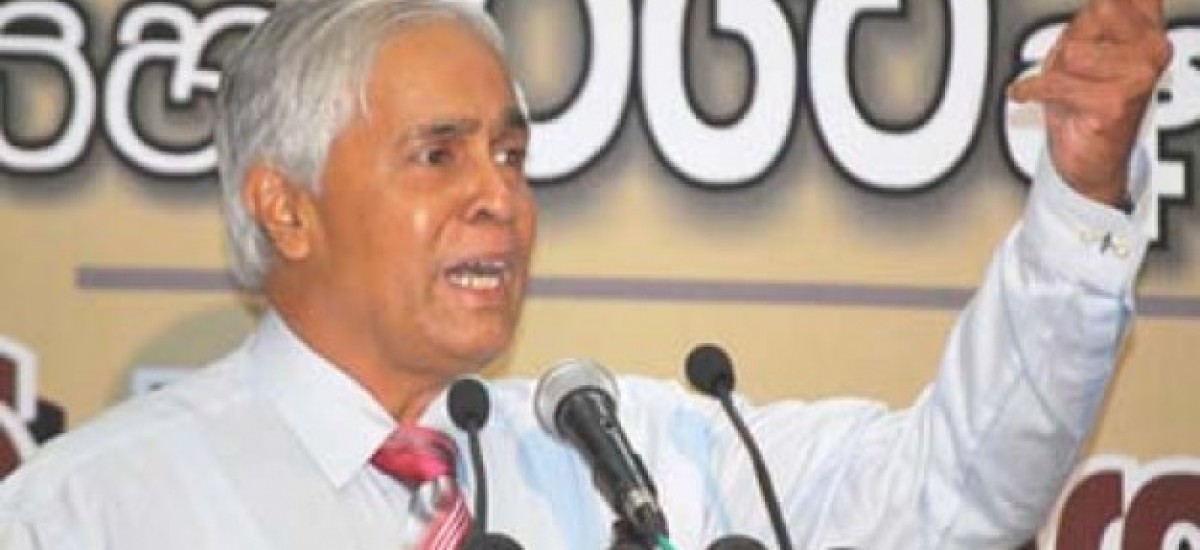Image courtesy Newsfirst
In the flood of commentary that has followed the former Chief Justice Sarath Silva’s public intervention regarding the potential illegality of President Rajapaksa seeking a third term, many have joined debate to remind us of Silva’s unsavoury behaviour on and off the Bench. One of the implications of these reminders, some of which have a rather holier-than-thou flavour to them, is that we should treat Silva’s too-clever-by-half argument with a large measure of scepticism on account of his past conduct.
Silva himself has not helped his case, and yet again devalued the office he held, with that bizarre ‘apology’ for his decision in the Helping Hambanthota Case. He made matters worse in a train-wreck of a BBC Sinhala service interview by saying that he arrived at the decision on the basis of a presumption of Mahinda Rajapaksa’s good character. He could offer no explanation, except for a seedy chuckle, when the interviewer asked him what role evidence (‘saakshi’) as opposed to presumptions (‘poorva nigamana’) played in a judicial decision. Rather than the intended effect as an expression of contrition, therefore, the apology has served to remind us all of the capricious and self-serving nature of his judicial conduct and the possibly political motives behind his present intervention on the legality of the third term.
While he is at it, he might as well go the whole hog and apologise for decisions that entrenched the corrupt crossovers of MPs in Amir Ali v SLMC (2006), for distorting the purpose of the law of contempt of court (and sending Tony Fernando and S.B. Dissanayake to prison), and for striking at the international protection of human rights by declaring unconstitutional Sri Lanka’s accession to the First Optional Protocol to the ICCPR in Singarasa v Attorney General (2006). He could apologise for his political adventurism garbed in the language of judicial activism, his obstreperous behaviour towards litigants and counsel, and a whole of host of other things about which Victor Ivan has written an entire book.
We have not forgotten any of these things, and we certainly should not. But to introduce these considerations into the discussion about the legality of the incumbent’s third term is to mistake the messenger for the message. The technical legal argument that the incumbent is not entitled to seek a third term was first propounded by Silva. Untainted others have agreed with, and added to, this position since. It has been established now that Silva’s argument is technically and normatively the correct view on this issue, and pro-regime commentators have so far failed to address the issues raised by Silva’s argument, let alone rebut any of them.
If that is the case, and President Rajapaksa goes ahead with the re-election process without taking prior remedial measures, then he would be consciously breaking the supreme law of the land. Given the lack of legitimacy of the Supreme Court after the impeachment of its previous Chief Justice by a dubious process, it would seem the only possible way he can do this is, is by again using his two-thirds parliamentary majority to amend the Eighteenth Amendment and have himself included within its terms by express words. If not, and if he gets re-elected as seems likely, the legitimacy and the legality of the President of the Republic would be at least open to question and doubt, and likely as not after the next parliamentary election, to impeachment proceedings for intentional violation of the constitution.
That is the fundamental constitutional issue at hand. I have no idea what Silva’s motives are in raising this issue, or why he chose his timing, but he cannot be blamed if the drafters of the Eighteenth Amendment failed to observe a long-established general principle of the legal system in requiring retroactive provisions to be worded in express terms. But now that the issue has been raised, and on balance it is the correct legal position, then our commitment to the rule of law and the supremacy of the constitution demands remedial action. Sarath Silva’s character and personality are a rank irrelevance in coming to any sensible conclusion on this matter.

